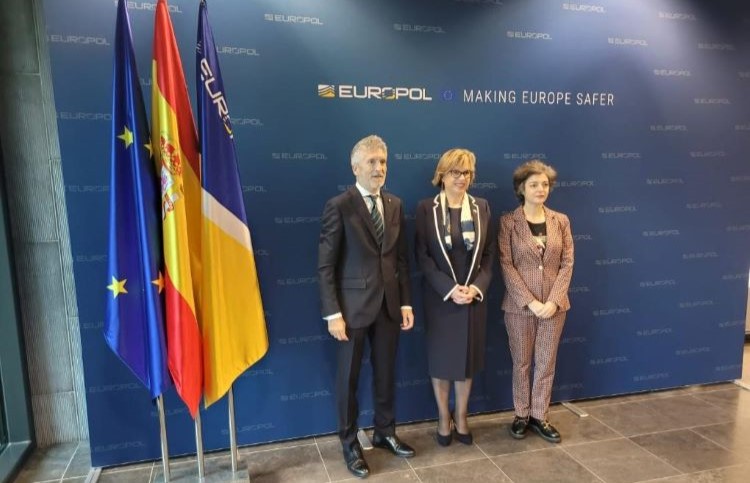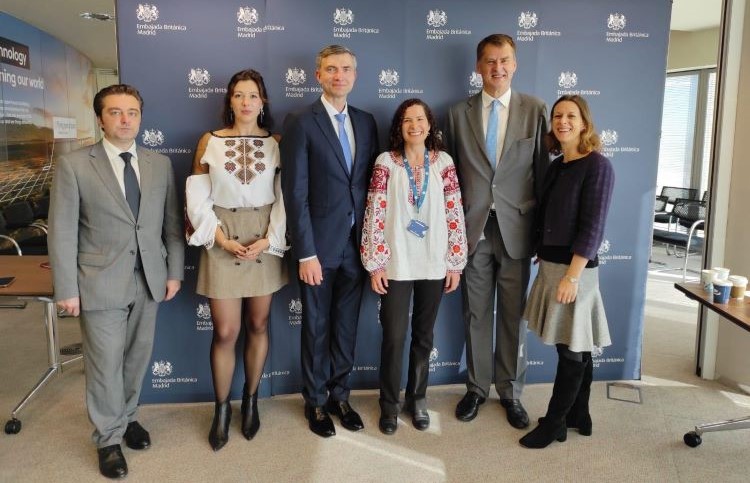The Diplomat
The Minister of the Interior, Fernando Grande-Marlaska, yesterday proposed to the heads of Europol and Eurojust the creation of joint investigation teams against international crime.
Grande-Marlaska visited yesterday in The Hague the headquarters of Europol and Eurojust, where he held meetings with their heads. During these meetings, the minister conveyed Spain’s commitment to strengthening international cooperation as the key to effectively prosecuting organized crime. “For Europol and Eurojust, it is essential to develop closer collaboration with third countries, which requires the possibility of ensuring an appropriate exchange of information and the option of creating joint investigation teams or other forms of cooperation that allow us to fight together the various manifestations of criminality,” he said.
Grande-Marlaska visited the Europol headquarters in The Hague at the invitation of its executive director, Catherine de Bolle, with whom the Spanish minister was able to learn first-hand how the European agency operates, as well as its priorities and challenges in the short and medium term. At the meeting with Europol executives, the minister was accompanied by the Spanish ambassador to the Netherlands, Consuelo Femenía, and the director general of International Relations and Foreigners of his department, Elena Garzón, among others.
During the meeting, Grande-Marlaska assured his interlocutors that for the Ministry of Interior “strengthening cooperation with the Latin American and Caribbean region to promote policies in the fight against organized crime will be a priority during the next Spanish Presidency of the EU in 2023.” “We also seek to foster collaboration between key actors involved in the prevention and prosecution of terrorism and violent radicalization, with special emphasis on public-private collaboration and the strengthening of European structures for the protection of victims of terrorism,” he added.
After visiting the Europol headquarters, the minister went to the Eurojust headquarters, where he held a working meeting with its president, Ladislav Hamran. In this meeting, Grande-Marlaska assured that Spain “is committed to the EU’s internal security strategy and the fight against serious organized crime and terrorism”, and therefore defended the need for Eurojust to improve its collaboration mechanisms with third countries in order to better tackle cross-border crime.
Likewise, the Minister of the Interior summarized the priorities of his department for the upcoming Spanish Presidency, such as the fight against terrorism, radicalization and organized crime, cybersecurity, cybercrime and the fight against disinformation, police cooperation, interoperability and training, and the adaptation of the common European policy on migration, borders and asylum to current needs and future challenges.







